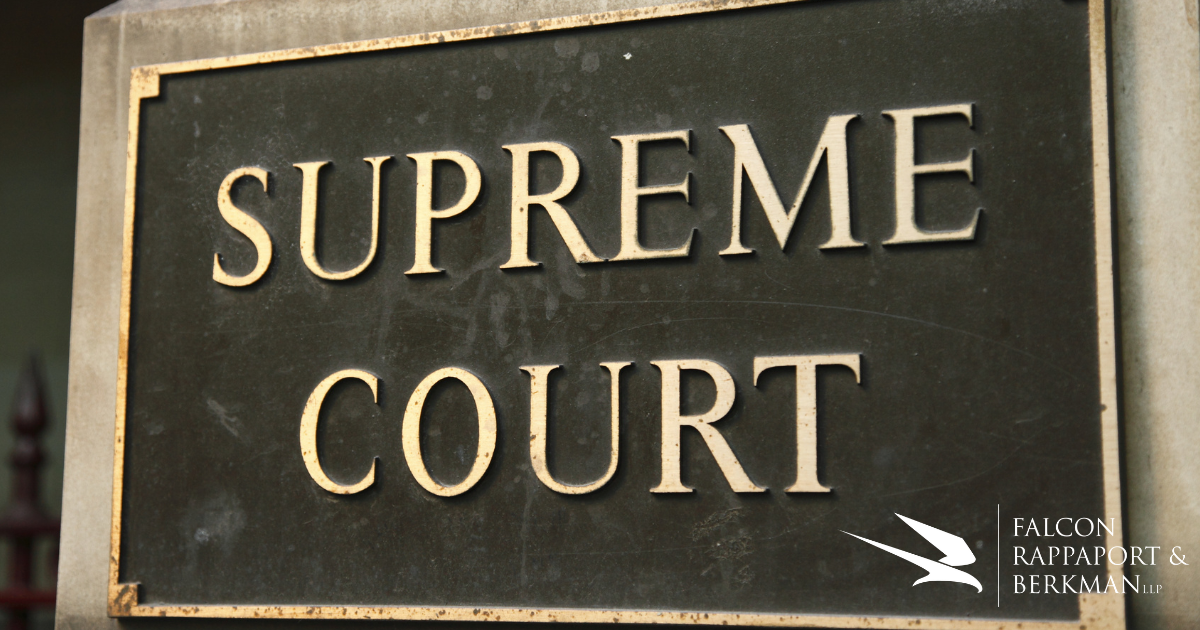Bankruptcy Section 363 Sale Orders No Longer a Certainty as the Supreme Court Holds that Section 363(m) of the Bankruptcy Code is Not Jurisdictional
By: Michael L. Moskowitz, Esq. & Melissa A. Guseynov, Esq.
In a recent decision, the Supreme Court unanimously held that federal courts may hear appeals of bankruptcy sale orders despite jurisdictional objections. See MOAC Mall Holdings LLC v. Transform Holdco LLC et al. (Case No. 21-1270). The decision resolves a circuit split, with the Second and Fifth Circuits previously holding that section 363(m) is jurisdictional, while the Third, Sixth, Seventh, Ninth, Tenth and Eleventh have held to the contrary.
Section 363(m) of the Bankruptcy Code states that the “reversal or modification on appeal of an authorization under subsection (b) or (c) of this section of a sale or lease of property does not affect the validity of a sale or lease under such authorization to an entity that purchased or leased such property in good faith, whether or not such entity knew of the pendency of the appeal, unless such authorization and such sale or lease were stayed pending appeal.” 11 U.S.C. § 363(m).
In this case, the landlord of a Sears store unsuccessfully objected to the assignment of the lease in the chapter 11 case. The landlord appealed the decision. The District Court initially reversed the order of the bankruptcy court. After the purchaser of the lease filed a motion for rehearing, the District Court held that Section 363(m) is a “jurisdiction-depriving statute” and dismissed the appeal. The Second Circuit affirmed the District Court’s ruling, and the landlord filed a petition for certiorari to the Supreme Court.
In her opinion, Justice Ketanji Brown explained that “Congress has not clearly stated that the provision is a limit on judicial power, rather than a mere restriction on the effects of a valid exercise of that power when a party successfully appeals a covered authorization.” This is important, because if section 363(m) is jurisdictional, “a party may invoke [it] at any time—without fear of waiver, forfeiture, or similar doctrines interposing.” Thus, the Supreme Court vacated the Second Circuit’s judgment and remanded the case for further proceedings consistent with the opinion.
The finding that subsection 363(m) is not jurisdictional may significantly influence future sales under section 363 as it will reduce the certainty for purchasers that the sale is final and non-appealable. Moving forward, any purchaser in a section 363 sale will have to consider MOAC Mall’s holding that 363(m) does not entirely bar an appeal.
Falcon Rappaport & Berkman invites you to explore how our professionals can meet your needs across our fully integrated areas of concentration. FRB’s interdisciplinary approach allows the firm to achieve unparalleled outcomes for our clients that could only be secured through proficiency in complementary areas of law. To contact any one of FRB’s professionals, please call (212) 203-3255 or submit the contact form below.
DISCLAIMER: This summary is not legal advice and does not create any attorney-client relationship. This summary does not provide a definitive legal opinion for any factual situation. Before the firm can provide legal advice or opinion to any person or entity, the specific facts at issue must be reviewed by the firm. Before an attorney-client relationship is formed, the firm must have a signed engagement letter with a client setting forth the Firm’s scope and terms of representation. The information contained herein is based upon the law at the time of publication.

